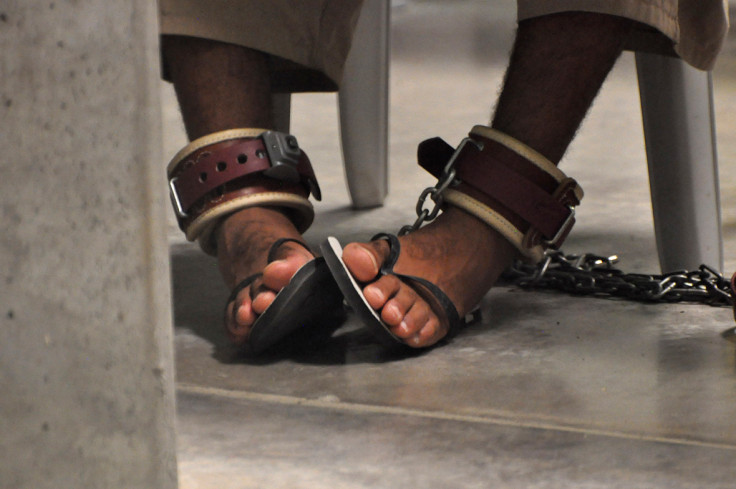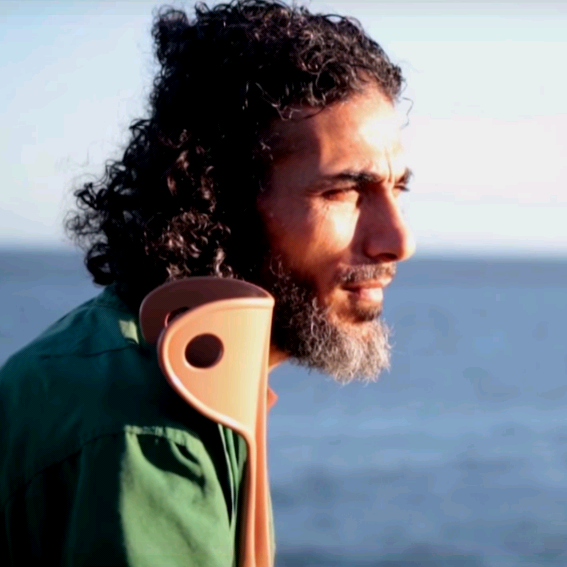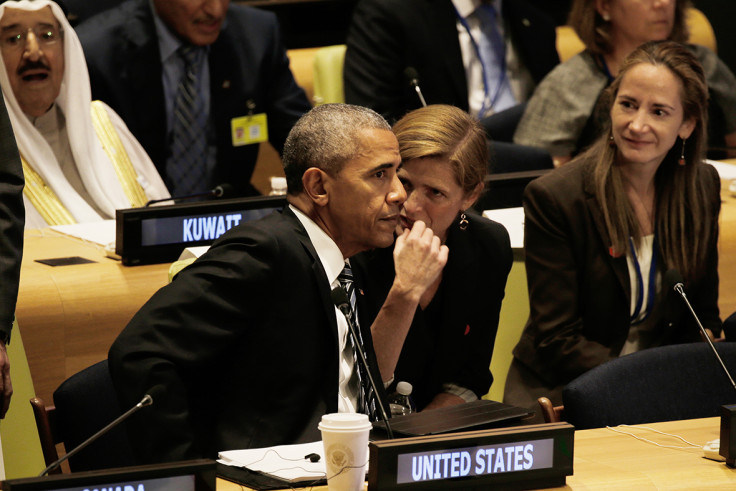How 'freedom' for Guantanamo's forgotten victims means abuse, torture and exile
Jihad Dhiab was sold by Pakistan to the US, and sold by the US to Uruguay.

With strong hints of Greek tragedy, the story has all the makings of a classic Hollywood film: a man detained and tortured unlawfully and relentlessly for more than a decade by a brutal regime is freed at last only to find himself banished and impoverished in a strange land, far away from his family and friends.
Physically and emotionally damaged by the years of abuse, he nonetheless embarks, on his crutches, on a journey across lands that are physically and geopolitically hostile and inaccessible to be with the wife and children he loves. Eventually he is found; he is forced to return to his place of exile and vows to fight to be with those he loves, to the death. He fights with the only means he has left: his life, and embarks on a hunger strike.
But this is not fiction. Last night, as Barack Obama addressed the United Nations General Assembly for the last time as president of the United States, as he called the refugee crisis "a test of our common humanity", he would rather have the world ignore this 15-year ordeal of Syrian refugee,
The 45-year-old was held at Guantánamo Bay for 12 years, where he was never charged or faced trial; he fell into US military hands after he was sold by the Pakistani police in 2002. By 2010, he had been cleared for release. The outbreak of war in the country the following year and the Syrian regime's own collusion in the CIA's extraordinary rendition programme meant that Syria was not a safe country for him to return to.
As a prisoner, Dhiab came to prominence in 2013 when he took part in the mass prisoner hunger strike, which he maintained until his release. Force fed by nasal tube, a practice the UN has said is tantamount to torture, Dhiab was one of four prisoners who sued the US government to stop the practice. This gave rise to a court case challenging the legality of the force feeding practice.

As well as being force fed in an excruciatingly painful manner on a regular basis, Dhiab was also subject to solitary confinement and was beaten through a process called Force Cell Extraction (FCE) as he was taken to be force fed. Videos of this practice exist and a federal judge has ordered the disclosure of these videos, which would show Dhiab being tortured by the US military.
The case is ongoing and the US government has fought tooth and nail to prevent these tapes being made public. In early September, it claimed that "they could be used as propaganda by extremist groups to incite anti-American sentiment"; an admission that it is the US government's own use of violence that fuels extremism.
In efforts to protect itself against revelations of its crimes against humanity, the US government has instead resorted to portraying Dhiab as a threat. As with his hunger strike at Guantánamo, the main threat Dhiab poses is to himself.
By the time he was released to Uruguay in December 2014 with five other men, Dhiab was so weakened by his hunger strike that he was in a wheelchair and remains unable to walk independently. Claims that the men were accepted as part of a "humanitarian gesture" quickly came apart when former Uruguayan president José Mujica admitted that the gesture was commercial: a means of trading oranges with the US. Men like Dhiab had been sold twice
Dhiab missed the wedding of his daughter, who he has not seen for most of this century.
Life and rehabilitation after torture, illegal detention and in a new land as refugees has proved difficult for the six men. Media scrutiny of their private lives and demonisation has not helped. A two-year stipend to cover living costs is due to end at the end of this year and none have been able to get secure or sustainable work.
For Dhiab, whose wife and children are refugees in Turkey, family reunification has been a major sticking point. Before he left Guantánamo he had been promised that his family would be able to come and live with him in Uruguay. In spite of many promises, they have never even been allowed to visit. Earlier in September, Dhiab missed the wedding of his daughter, who he has not seen for most of this century.
With a list of other promises broken by the Uruguayan government, Dhiab has sought asylum abroad, visiting Argentina, where his mother is from, in 2015. In June 2016, he disappeared. The media claimed he had travelled to Brazil to sabotage the Rio Olympics. An Interpol notice was put out but he could not be found.
Instead, he appeared at the Uruguayan Embassy in Venezuela in late July demanding he is sent to Turkey to be reunited by his family. The embassy refused his request. The Venezuelan authorities jailed him and when he learned he was to be deported to Uruguay, and not sent to Turkey, he went on hunger strike on 12 August.

He arrived back in Uruguay in late August and continues his hunger strike to date. On 1 September, Dhiab stepped up his action by refusing liquids as well. As a result, he has been hospitalised three times and slipped into a coma for nine hours.
Dhiab no longer trusts the Uruguayan government and does not wish to remain there. The authorities there claim they are still making efforts to find a safe third country to resettle Dhiab and his family. Turkey and two other Arabic-speaking Middle Eastern countries have refused to resettle them. This is undoubtedly due to pressure from the US as well, which is using this situation as a lever to deter Dhiab from continuing his force feeding claim against it.
Dhiab's story is not unique; many families around the world are torn apart through wars waged by others. Dhiab is indeed a long-term victim of US foreign policy.
Nonetheless, the impasse continues, possibly to the death. On 16 September, a judge refused to allow a claim by the Uruguayan government to have Dhiab declared incompetent so that he could be force fed against his wishes. On the same day, he and his supporters issued a video to the government giving it an ultimatum to set out a timeline for family reunification. This was rejected on 19 September, but Dhiab nonetheless granted the government an additional week up until 26 September and has in the meantime agreed to consume liquids. His physical health is worsening.
For Dhiab, he is not free when that freedom keeps him away from his family. He has told the Uruguayan press that he would rather die than continue in the situation he is in. Mired in the rhetoric of the "war on terror", Dhiab's case is emblematic of the fact that a large part of the difficulty that lies in closing Guantánamo for the US relates to how the US can keep control of the witnesses and victims of its torture experiments and programmes; simply calling them terrorists without any evidence is no longer enough.
It also reflects the larger global debate of how to deal with the refugee crisis. In this respect too, Dhiab's story is not unique; many families around the world are torn apart through wars waged by others. Dhiab is indeed a long-term victim of US foreign policy.
Supporters in Uruguay have promised a week-long series of actions, including vigils outside the parliament building and the US Embassy. Outside of Uruguay supporters have organised a petition to President Tabaré Vázquez demanding urgent action.
Aisha Maniar is a London-based human rights activist who works with the London Guantánamo Campaign and other organisations, mainly on issues related to prisoner and minority rights and torture.
© Copyright IBTimes 2025. All rights reserved.






















